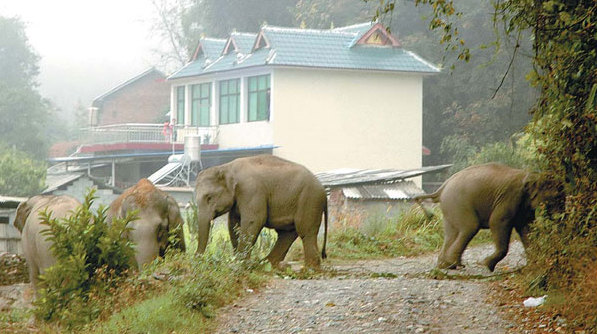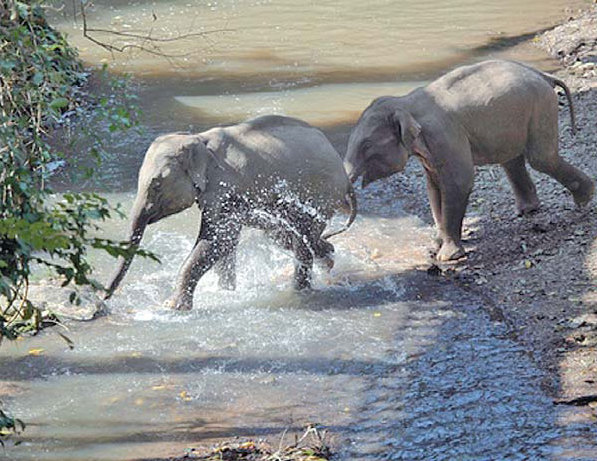Threat of the threatened
Better insurance payouts for villagers and making them stakeholders in conservation would protect the elephants and benefit the local communities in Yunnan, as Yang Yao discovers.
For many, elephants are loveable creatures: obedient, careful and calm. But for the villagers in Xishuangbanna it is a different story.
Ten years ago a rogue elephant came into village from the hills and trampled Yan Han's mother to death while she was working in the rice fields.
Now the nightmare has returned to the village.
|
Wild elephants on farmland near houses in a village in Xishuangbanna, Yunnan province on Feb 16, 2013. Dai Zhenhua for China Daily |
|
Wild elephants in Xishuangbanna National Natural Protection Area cross a creek. Zhang Guoying / Provided to China Daily |
Yan Han, a quiet middle-aged farmer in Mengman village in Xishuangbanna told China Daily that wild elephants rampage through the villages, crushing crops and damaging farms two or three times a year.
Yan said there is a growing conflict between the villagers and elephants over land, and because of the greater frequency of encounters there is a growing risk that more people will die, as each year people are injured.
"The elephants are active at dawn and dusk, and moving in the elephants' territory at these times can seem threatening to the elephants," he said.
Yunnan province is the last habitat for China's remaining wild elephants and they are protected under Chinese wildlife laws. According to Yan Xun, the State Forestry Administration's chief engineer for wildlife conservation, conflicts between elephants and humans over land was a leading cause in the species' historical decline, but thanks to the enhanced efforts of the government to protect the elephants in recent years, their number has been on the rise.
However, at the same time as the elephant population has been growing, there has been ever greater depletion of their natural habitat due to human activities. Xishuangbanna has been experiencing dramatic forest loss due to the conversion of the lowland tropical forests, which are the elephants' natural habitat, into rubber plantations. This has resulted in growing antagonism from the villagers toward the elephants, as every year the elephants destroy crops and houses and injure people.
"The long-term survival of the wild elephants depends on the development of a scheme to compensate farmers adequately for the damages they suffer as a result of the raids by elephants," Yan said.
The compensation provided at present is far from enough, he explained.
Related:


















